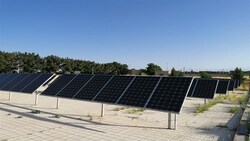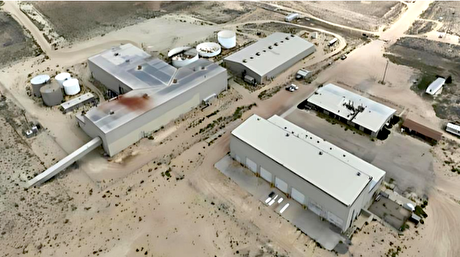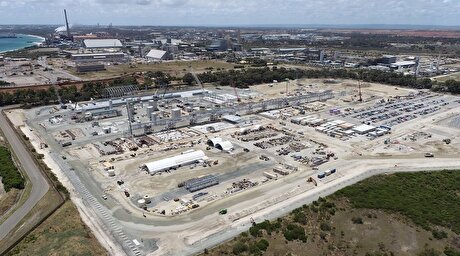
Iran private sector to boost renewable power generation

Renewable power stations with a total capacity of 900 megawatts will come on stream by 2025, Ghadir Energy Investment Company, a member of the Power Generation Companies Syndicate, said.
“The privately-owned company will construct 800 MW of solar farms and 100 MW of wind farms during the three-year period,” Farideddin Masoumi was also quoted as saying by ISNA.
“Ghadir Company has already built four 10 MW solar power plants in Isfahan, Yazd and Qom provinces. By the end of the current Iranian year [March 2023], more solar stations with a total capacity of 60 MW will become operational,” he added.
Elaborating on the projects, the official said 20 MW of solar farms will be built in Isfahan, 20 MW will be added to the solar generation capacity of Yazd and also 20 MW of photovoltaic power stations will come on stream in Fars Province.
The launch of these power plants will help save 33 million cubic meters of natural gas. If the same amount of power were to be produced by thermal power plants, they would need to burn the fossil fuel, he added.
Referring to the potentials in Iran for the development of renewable energy, Masoumi said the average solar radiation in Iran is estimated to be about 2,000 kilowatt hours per square meter during 300 sunny days a year, which is higher than the global average.
“The figure reached 5,000 kilowatt hours per square meter in Isfahan and Yazd so they are better locations for the construction of new solar power plants,” he added.
To help expand renewable energy in Iran, over $100 million have been earmarked in the budget bill for the current year.
The development of renewables will help address the problems of generating electricity by thermal power plants.
While thermal power stations need fossil fuel as feedstock and water for cooling purposes and also pollute the environment, renewables are eco-friendly and require neither fuel nor water, nor do they emit greenhouse gas.
Source: ICCIMA


BHP, Vale accused of ‘cheating’ UK law firm out of $1.7 billion in fees

Trump tariff surprise triggers implosion of massive copper trade

Eldorado to kick off $1B Skouries mine production in early 2026

Newmont nets $100M payment related Akyem mine sale

Southern Copper eyes $10.2B Mexico investment pending talks

Copper price collapses by 20% as US excludes refined metal from tariffs

St Augustine PFS confirms ‘world-class’ potential of Kingking project with $4.2B value

Maxus expands land holdings at Quarry antimony project in British Columbia

First Quantum scores $1B streaming deal with Royal Gold

Caterpillar sees US tariff hit of up to $1.5 billion this year

Uranium Energy’s Sweetwater plant on fast track for in-situ mining approval

Tianqi Lithium Australia JV says it is prioritizing long-term viability of refinery

First Quantum scores $1B streaming deal with Royal Gold

One dead, five missing after collapse at Chile copper mine

Eldorado to kick off $1B Skouries mine production in early 2026

Newmont nets $100M payment related Akyem mine sale

Idaho Strategic rises on gold property acquisition from Hecla

Goldman told clients to go long copper a day before price plunge

Gold price rebounds nearly 2% on US payrolls data

Caterpillar sees US tariff hit of up to $1.5 billion this year

Uranium Energy’s Sweetwater plant on fast track for in-situ mining approval

Tianqi Lithium Australia JV says it is prioritizing long-term viability of refinery

First Quantum scores $1B streaming deal with Royal Gold

One dead, five missing after collapse at Chile copper mine

Eldorado to kick off $1B Skouries mine production in early 2026

Newmont nets $100M payment related Akyem mine sale

Idaho Strategic rises on gold property acquisition from Hecla

Goldman told clients to go long copper a day before price plunge














